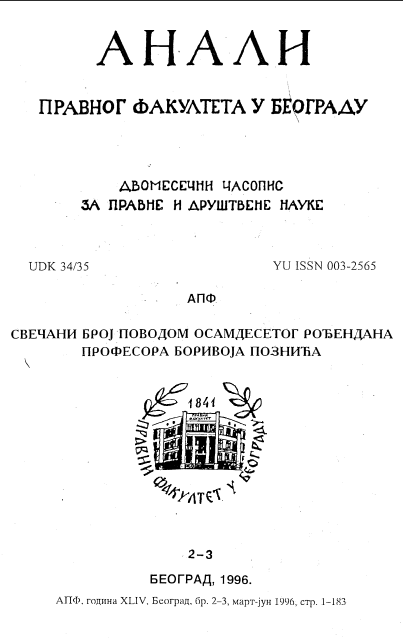СМИСАО ПОНУДЕ У ЕВРОПСКОМ И АНГЛО-САКСОНСКОМ ПРАВУ
THE SENSE OF OFFER IN EUROPEAN CONTINENTAL AND ANGLO-SAXON LAWS
Author(s): Miodrag V. OrlićSubject(s): Law, Constitution, Jurisprudence
Published by: Правни факултет Универзитета у Београду
Keywords: Offer; European continental laws; Anglo-Saxon law; Notion of offer; Comparative analysis
Summary/Abstract: Dissimilar determination of the notion of offer in the English law as contrasted to European continental laws is rooted in the different conception of contract. The notion of contract in English law, namely, is considerably narrower, since it includes, in principle, only those legal transactions which, in terms of our law, are represented by bilaterally binding contracts. This is why in English law the offer is defined as a promise, while in the European — as a proposal for entering into contract. These differences in defining of notions, however, are not insurmountable, since mentioned notions may be conceived as concentric circles, where the promise represents the narrow and the proposal — a wider circle. The relationship determined like this is illustrated by an analysis of connection between the proposal for entering into contract and the promise, according to the European meaning of offer. After analyzing the relationship between the proposal and offer in terms of the concluding bilaterally binding and unilaterally binding contracts (firstly those whose conclusion is suggested by the future debtor, and then those unilaterally binding whose conclusion is proposed by the future creditor), one may conclude that the differences between the notion of offer in the common law and in the European continental laws are not that great as it would seem at first sight. In the European continental laws, too, the offer in most cases has as its substance the very promise of the future debtor. However, due to the existence of unilaterally binding contracts, the offer in European laws can not be reduced to the promise. In these contracts, namely, it has the character of a promise only after being initiated by the future debtor. Should the future creditor offer the conclusion of a contract, such an offer is not a promise but only a proposal.
Journal: Анали Правног факултета у Београду
- Issue Year: 44/1996
- Issue No: 2-3
- Page Range: 107-119
- Page Count: 13
- Language: Serbian

